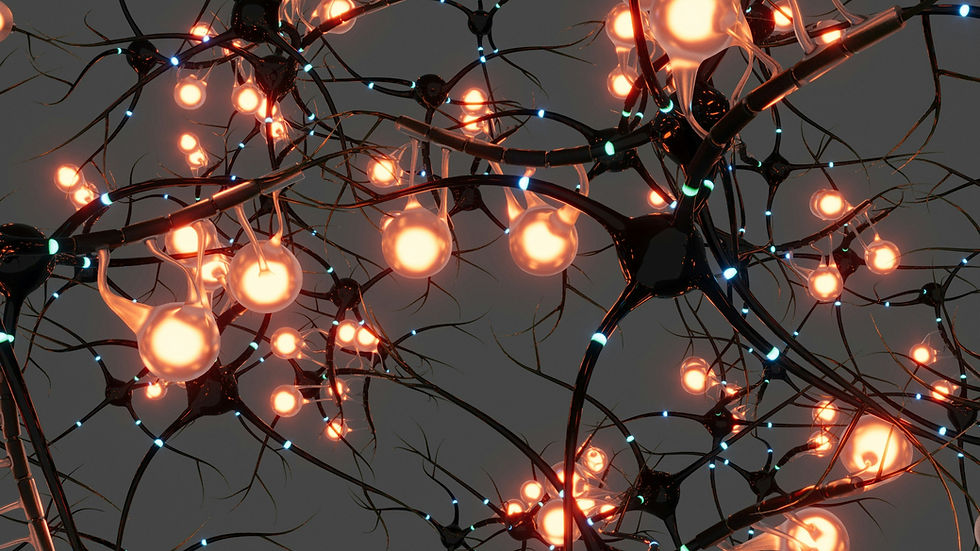Why You Can’t Sleep Before Your Period, And What to Do About It
- Sienna Jay

- Aug 1, 2025
- 3 min read

Our menstrual cycle doesn’t just bring cramps or cravings, it rewires our sleep, shifts our energy, and affects stress recovery. If you’ve ever lain awake before your period or struggled to rise mid‑cycle, you’re not imagining it. Emerging research shows that fluctuating oestrogen and progesterone levels alter how much REM and deep sleep we get each night.
What Is “Period Insomnia”?
Often coined “period insomnia,” many people who menstruate report poor sleep quality in the late luteal phase (the week before bleeding). This can mean:
Difficulty falling or staying asleep.
Early morning waking.
Feeling exhausted despite a full night’s rest.
Those with PMS (affecting up to 90% of people who menstruate) or PMDD (3–8%) report the worst disruptions. Reproductive psychiatrist Dr Carly Snyder warns:
“Poor sleep worsens everything, so optimising rest can ease other symptoms like irritability and low mood.”
Why Your Hormones Affect Your Sleep
Sleep and hormones are closely linked, and fluctuating oestrogen and progesterone levels across the menstrual cycle can seriously disrupt rest. After ovulation, progesterone rises to prepare for pregnancy, then drops sharply if pregnancy doesn’t occur, a shift often tied to lighter sleep, more night waking, and poorer overall sleep quality in the days before your period.
In hormonal conditions such as PCOS, disrupted levels of progesterone and higher androgens like testosterone can further disturb sleep, and even increase the risk of sleep apnoea.
Hormonal sleep issues can also create a feedback loop: poor sleep can throw off hormone regulation, which in turn makes sleeping even harder. Over time, this cycle can impact your energy, mood, and menstrual health.
Understanding Cycle Phases & Sleep Needs
Each phase brings its own sleep challenges, but there are actions you can take:
Menstruation (Days 1–6)
Progesterone low, oestrogen rising.
You may feel tired from blood loss or cramps.
Prioritise gentle routines, pain relief, and breathable sleepwear.
Follicular (Days 7–13)
Oestrogen builds; energy and focus rebound.
Reinforce sleep hygiene: consistent bedtimes, moderate exercise, and be mindful of caffeine intake.
Ovulation (Day 14)
Many feel energised and social, which can hinder rest.
Schedule downtime, and avoid intense evening workouts.
Luteal (Days 15–28)
Progesterone rises then sharply drops.
Expect more night waking, bloating, or anxiety, classic “period insomnia."
5 Cycle‑Smart Tips for Better Sleep
Track Your Rhythms
Use an app or journal to note sleep quality, mood, and energy. Spot your vulnerable days and plan rest.
Wind Down Consistently
Dim lights and switch off screens an hour before bed.
Keep caffeine to before 2 pm and limit alcohol.
Try deep breathing, journalling, or gentle yoga.
Stay Cool After Ovulation
Progesterone raises body temperature, opt for breathable bedding, cotton sleepwear, or a fan.
Soothe Period Pain
A hot‑water bottle, light stretching, or ibuprofen/paracetamol (if suitable) can ease cramps that wake you.
Support Your Mind
Late-luteal anxiety can fuel insomnia. Mindfulness, a short CBT-I (Cognitive Behavioural Therapy for Insomnia) exercise, or jotting down worries can help break the cycle.
Can Sleep Impact Your Cycle Too?
Absolutely. Chronic sleep deprivation and irregular sleep patterns, such as late nights or jet lag, can:
Disrupt thyroid and reproductive hormones.
Lead to longer, shorter, or heavier cycles.
Increase menstrual pain via elevated prostaglandins.
Getting enough rest isn’t just about feeling refreshed, it may help your cycle run more smoothly, too.
The Final Word
Recognising how hormones and sleep intertwine lets you work with your body, not against it. By tracking your cycle and making small, phase‑specific adjustments, whether that’s prioritising an early night before your bleed or cooling your room mid‑cycle, you can support more restorative sleep throughout the month.




Comments